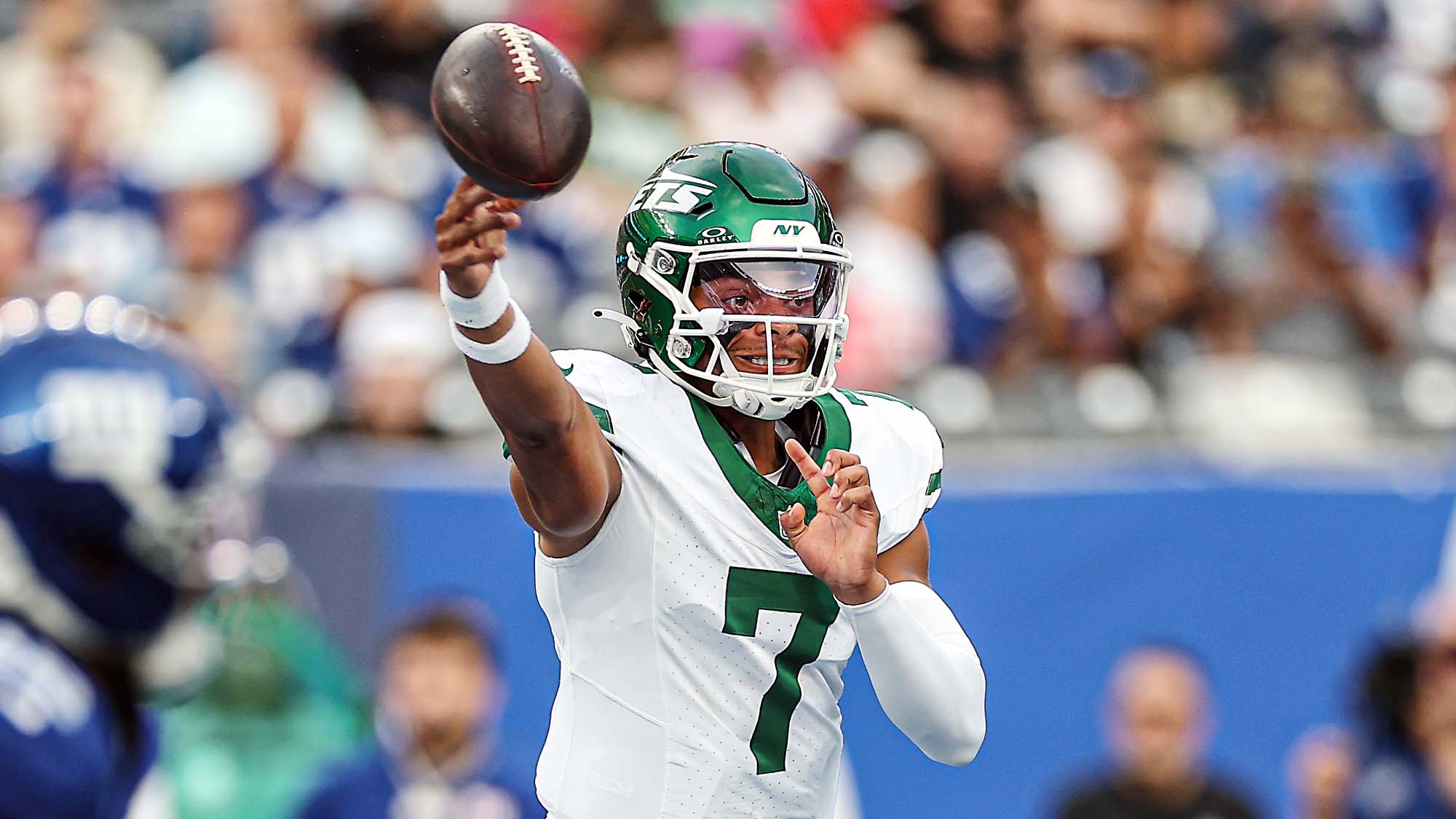When Justin Fields became a first-round pick in the 2021 draft, some analysts wondered if the Ohio State product could continue his collegiate heroics into the NFL.
Through his first four seasons, Fields has yet to show even an inkling of the success he had in college. Now, as a member of the New York Jets, the young signal-caller is about to start for his third different team in as many years.
Fields’ main problem is his consistency through the air. Until he improves that part of his game, it is difficult to envision the 26-year-old proving his worth in Florham Park.
As he prepares for a Week 1 contest as the face of the franchise (his last chance to be one), Fields believes there’s a philosophy within the team that will serve him well in 2025 and beyond.
It might just save his career.
Justin Fields’ passing plan
Many Jets fans are not convinced by what they have seen out of Fields so far in training camp and the preseason. During the team’s 31-12 loss to the New York Giants last Saturday, Fields completed just one out of five passes in two drives played.
Jets-Giants All-22 film review: Is there hope for pass game?Those numbers aren’t good for any signal-caller, let alone one trying to prove his worth to a new team.
Fields completed three of his four passes in the Jets’ preseason opener, although none of his attempts traveled past the first down marker. He did not complete a pass beyond the sticks in either of his two preseason games.
Despite his recent struggles to push the ball downfield, Fields doesn’t appear too concerned about where the passing offense is. To the Ohio State product, it’s all about taking what the defense gives you.
“We’re fine taking 8 yard completions every play, to be honest with you,” Fields said. “Of course you want explosives, but like I said Saturday, we’re not going to force the ball down the field.”
Opting for checkdowns over forcing the ball downfield is not a new concept in the NFL. Many quarterbacks on lackluster offenses have utilized a “dink and dunk” approach, and have given defenses fits because of that.
One of the best quarterbacks at that very skill was the Jets’ hated rival, Tom Brady. The seven-time Super Bowl champion began his career in New England as a game manager who would only take what the defense would give him.
His numbers may not have been pristine early in his career, but Brady’s Super Bowl victories more than made up for that.
Fields is obviously not Tom Brady. No one would be foolish enough to compare the Jets’ signal-caller to him. That being said, in the modern NFL, where defenses always look to force a turnover, having a quarterback who keeps the ball out of harm’s way could be an excellent way to win games.
If Fields is able to stand true to this style, he may have the Jets in a much different category than they have been for the last 14 years.

